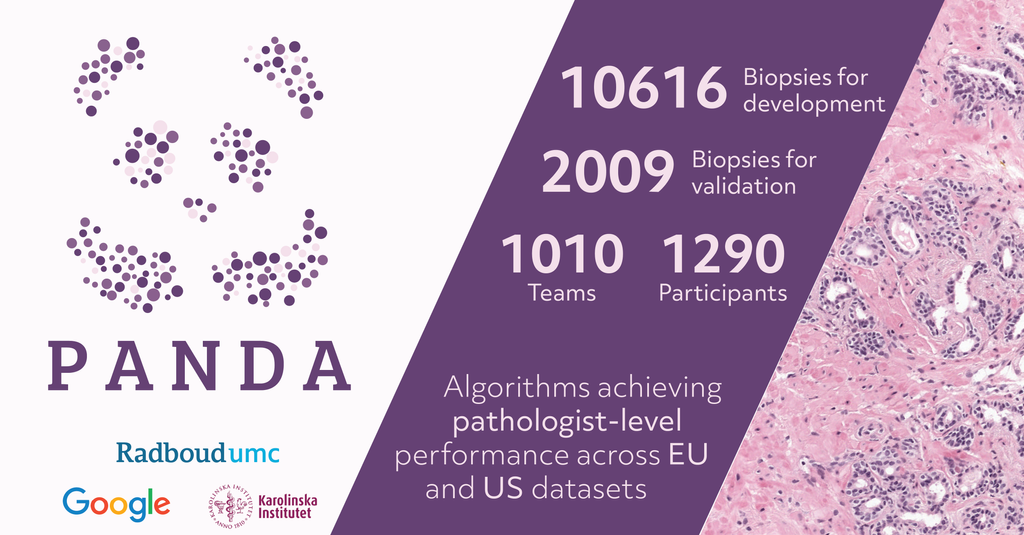Results of the PANDA challenge published in Nature Medicine

Prostate cancer grading is a key component in making treatment decisions for patients. However, pathologists can often disagree on the severtiy of the disease, expressed using the Gleason Grade. In 2020, we already showed that AI can help pathologists (Automated deep-learning system for Gleason grading of prostate cancer using biopsies: a diagnostic study and Artificial Intelligence Assistance Significantly Improves Gleason Grading of Prostate Biopsies by Pathologists). In the same year, using different methods and datasets, researchers from the Karolinska Institute and Google Health showed similar results. This insentivized us to reach out to them, to try and pool our datasets and build even better AI solutions. And, as is the tradition in our group, not just by keeping everything closed and doing it ourselves, but by opening up the data and tools to the world via the Prostate cANcer graDe Assessment (PANDA) Challenge.
Over a 1000 participants, tried to tackle the problem of prostate cancer grading, using over 10000 prostate biopsies from 1000s of patients and many succeeded, with the top 20 being separated by only 0.02 in Cohen's quadratic-weighted Kappa. After the challenge, with a group of top-performing participants, we set out to answer a key question: did we solve the challenge or did we solve AI-based Gleason grading. For the latter to be true we needed to assess generalization to completely unseen data. In addition, next to the generalization performance of the algorithms, we wanted to identify cross-continental generalization between pathologists with data from both the US and Europe. After a year of hard work, across Slack, Zoom, Google Meet and many other tools of the the post-pandemic research world, we finally can announce the publication of this study in Nature Medicine.
And what we found? You can read that yourself, because we made the paper available open-access here.
← Back to overview